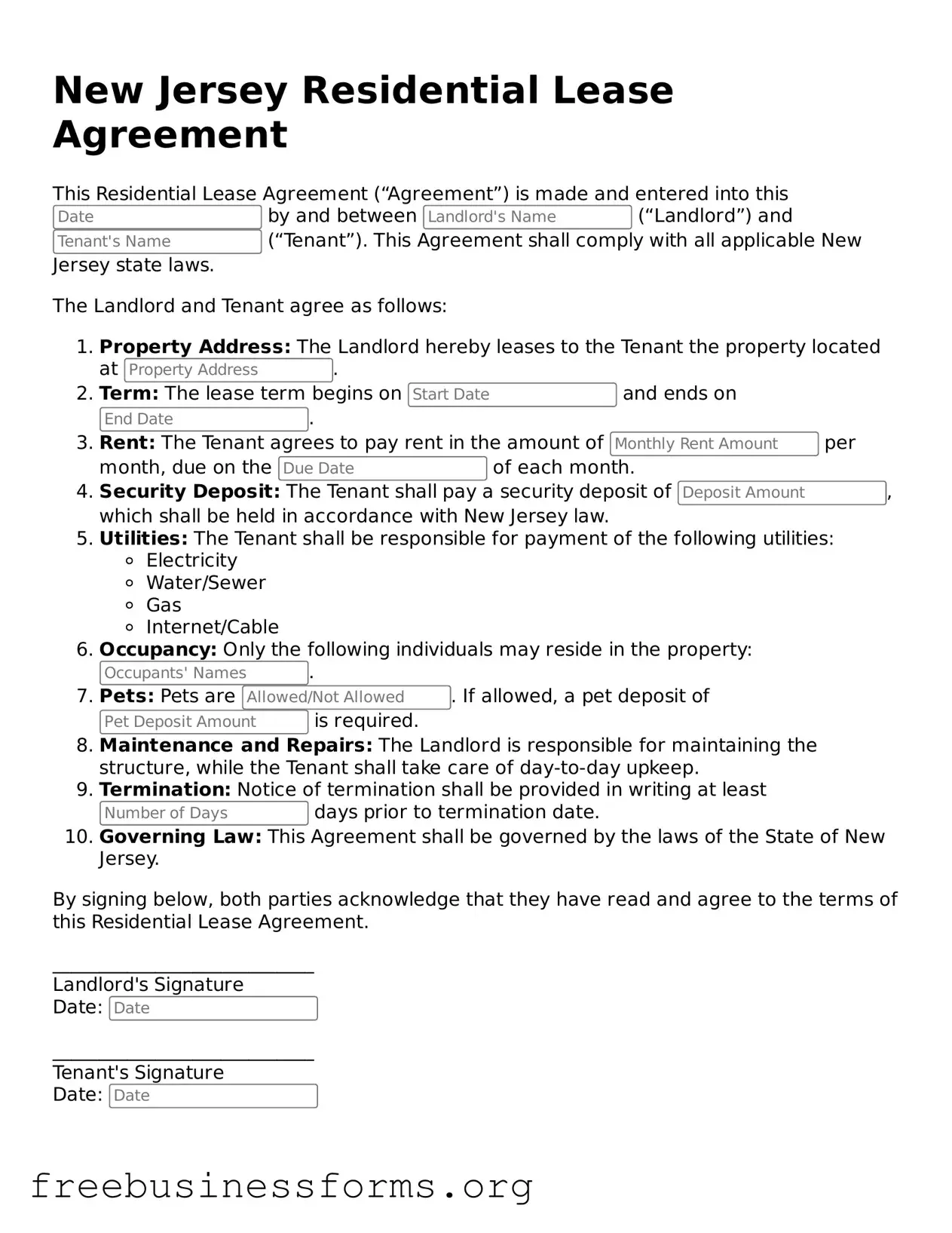Blank Residential Lease Agreement Template for New Jersey
The New Jersey Residential Lease Agreement is a legally binding contract between a landlord and tenant that outlines the terms and conditions of renting a residential property. This document ensures that both parties understand their rights and responsibilities, promoting a harmonious living arrangement. Familiarity with this form is essential for anyone looking to rent or lease property in New Jersey.
Open Form Here

Blank Residential Lease Agreement Template for New Jersey
Open Form Here

Open Form Here
or
↓ PDF File
Quickly complete this form online
Complete your Residential Lease Agreement online quickly — edit, save, download.